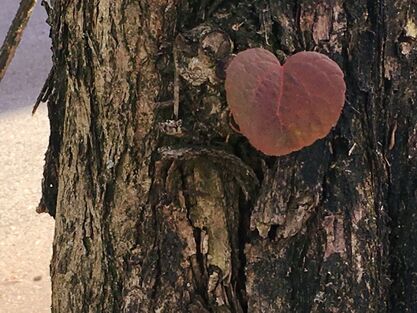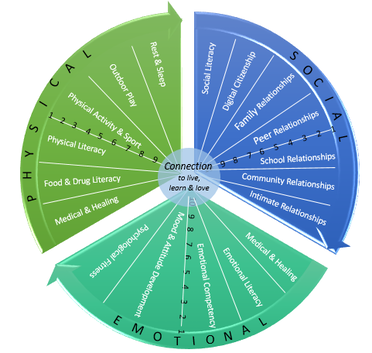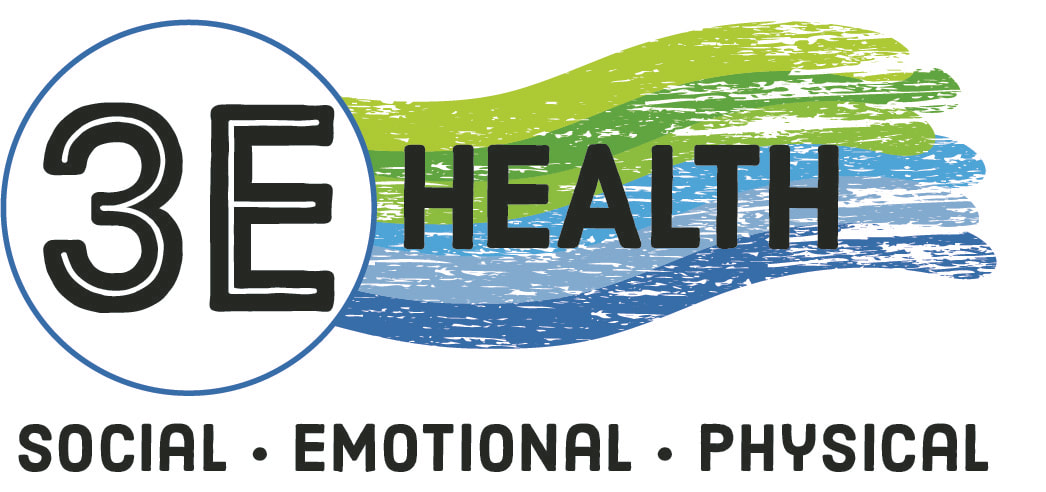Toxic Health Syndrome - Why It’s Surprisingly Challenging to Engage in Behaviours That Nourish Us3/10/2020 By Karen Janzen I was waiting in line for the holiday dinner buffet at a work party with many of the colleagues I had been in the trenches with on mental health initiatives this year. Most of us were pretty impressed by the spread, and our conversation rapidly turned to phrases like “cheat day”, “I’m gonna be bad…” and a disgusted, “I have this today, and two this weekend; I HAVE to get to the gym tonight.” Since we had worked together on many mental health initiatives, I steered the conversation toward the benefits this food would do for our stressed minds, like the tryptophan in the turkey is a precursor to serotonin, a neurotransmitter that supports mood balance. The brussel sprouts have phytonutrients that reduce inflammation, fight cancer, and help control blood sugar. The carbs in the potatoes produce dopamine. Sweet potatoes also control blood sugar and are high in antioxidants… Only I didn’t get past the brussel sprouts when I was shut down with, “Please, Karen! Just let us enjoy this!” …which I thought was a really odd comment considering I was mindfully appreciating the good the food was doing for us, while the other professionals around me were rolling their eyes, anticipating shame, engaging in self loathing, and a toxic ‘health’ mindset. …Which made me wonder, how are we supposed to engage in health education when our experiences around health are largely constructed around a capitalist driven, patriarchal-colonial focused toxicity?  We need to name and know this permeating, damaging imposter, disguised as health, so we can better identify when our thoughts and actions are serving something else that isn’t self-love… We need to name and know this permeating, damaging imposter, disguised as health, so we can better identify when our thoughts and actions are serving something else that definitely isn’t self-love… something that’s making us and everyone around us sicker instead of stronger. I’m going to call it, “Toxic Health Syndrome”. Toxic Health Syndrome (or THS) describes the pervasive, targeted, and systematic poisoning of our natural intuition and experience around what is good for us and why. It leads to the weakening of connection with self-love, others, and meaning in life which can cause depression, anxiety, addiction and potential psychological interference with the body’s ability to heal. Toxic health syndrome is transmitted largely through media, is reinforced socially, and becomes more serious with a weakened sense of self awareness. In her 2019 New York Times opinion column, 'Smash the Wellness Industry', author Jessica Knoll describes wellness as “this poisonous relationship between a body I was indoctrinated to hate and food I had been taught to fear.” She says, “at its core, ‘wellness’ is about weight loss… preserving a vicious fallacy: Thin is healthy and healthy is thin.” Knoll goes on to tell the story of her return back to actual healthy thinking when she visited the nutritionist behind the ‘intuitive eating’ movement. Knoll shares the moment of paradigm shift when her nutritionist asked her if she could think of her larger-than-ideal appetite as a gift. After two years of work allowing her thoughts around health to heal (intuitively) she reports, “I no longer define food as whole or clean or sinful or a cheat. It has no moral value. Neither should my weight, though I’m still trying to separate my worth from my appearance. They are two necklaces that have gotten tangled over the course of my 35 years, their thin metal chains tied up in thin metal knots”. And there’s where I see the primary barrier to broaching health with students (and ourselves and each other). THS motivates many of our healthy pursuits from a place of shame, hopelessness, or insecurity, making it nearly impossible for us to differentiate between health & toxicity. For some educators it evokes a proverbial roll of the eyes, followed by a couple of random stabs at ‘healthy activities’, usually solely focused on the physical body, and then gets shoved back into the closet. Or it gets relegated to the ‘experts’ and we, the human whose condition and experience is at stake, become a bystander in our own lives, while the expert tells us how it should be. And because so many of us have gone so many rounds with THS, we engage in numbing activities before, during, and after a healthy activity to avoid the THS associated shame, and that numbing prevents us from engaging in bio- psycho-social-spiritual benefits that come from mindful nurturing of ourselves.  How do we begin to untangle Knoll’s proverbial knotted chains around our neck? Dr. Daniel Amen, well known brain researcher, author, and psychiatrist outlines several steps integrating the brain, circulatory system, gut, outdoors, psychological fitness, relationships, and many other components we’ve included in the 3E Health Connection Wheel. Specifically Dr. Amen cites the first step toward his “Revolution in Brain Health” as shifting from a disease mindset to a healthful mindset. His second step is to “fall in love with your brain”. This is the touchstone from which any true health nurturing begins. My experience is that “self-love” (to legitimately love yourself) is critically foundational, but many of us skip over it because we don’t know how to get there (especially when we’ve been raised in a culture of scarcity, less-than, and particularly for vulnerable populations, self-hatred).  I have to admit, I spent a lot of my thirties trying to find the pathway to “loving myself”, but it always ended in THS, and me attempting to earn my worth. The first time I actually engaged in true self love was at the beginning of a difficult, complicated divorce (are there any simple ones?) Ironically my best friend was going through divorce at the same time. She shared some sage wisdom she had already gleaned from a trusted advisor. Coming from our common faith background she said, “There’s only three questions you need to ask: 1) What is the most loving thing God would want for me right now? 2) What is the most loving thing I can do for myself? 3)What is the most loving thing I can do for my child [or family]?” Regardless of our faith and/or scientific affiliations, or absence of, most people can agree that love is the energy that creates and unites all life. We need to get in touch with that love and begin to approach the well-being of our mind/body from an origin of love, not from one of lack or disgust. It doesn’t matter how that source of love is identified, the important part is that we’re able to connect our hearts to it, and start from there. As educators and/or parents, we need to examine our own ability to mindfully experience self love and wellness first, before we transmit any more THS onto our students/kids. Start naming Toxic Health Syndrome when it comes up and talk about the most loving thing you do for your whole being, brain, heart, and body. Better yet, walk and talk priming your brain and body to experience self love in action. Where do you see Toxic Health Syndrome affecting your practice the most? References: Knoll, J. 'Smash the Wellness Industry' – New York Times https://www.nytimes.com/2019/06/08/opinion/sunday/women-dieting-wellness.html Amen, Daniel, MD 'Change Your Brain, Heal Your Mind with Daniel Amen, MD' Public Broadcasting System 2019-12-17 McGonigal, K. Five Surprising Ways Exercise Changes Your Brain - Greater Good Science Center https://greatergood.berkeley.edu/article/item/five_surprising_ways_exercise_changes_your_brain?utm_source=Greater+Good+Science+Center&utm_campaign=2b4172741b-EMAIL_CAMPAIGN_GG_Newsletter_Jan_9_2020&utm_medium=email&utm_term=0_5ae73e326e-2b4172741b-52139255
2 Comments
Ashley C
3/12/2020 09:23:59 am
Toxic Health Syndrome—-so true!!!! Disconnecting and self-hatred in the guise of “health.” This term is very fitting. Love this post.
Reply
3/14/2020 03:55:05 pm
Thanks Ashley! Toxic Health Syndrome is a resistance or sabotage that I feel lurks under the surface whenever I begin to approach health education holistically. I’m curious, what does THS look like in your professional practice?
Reply
Leave a Reply. |
Chad Oatway &
|

 RSS Feed
RSS Feed
